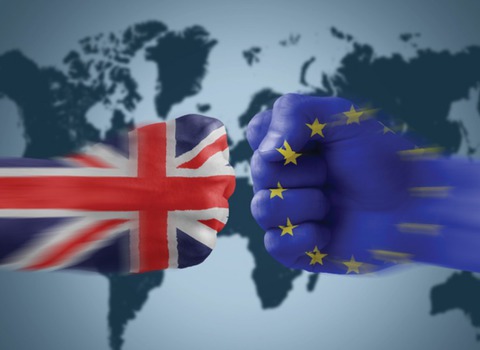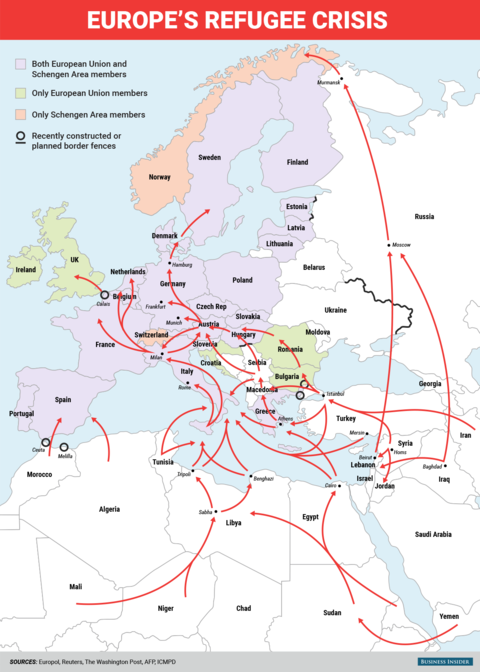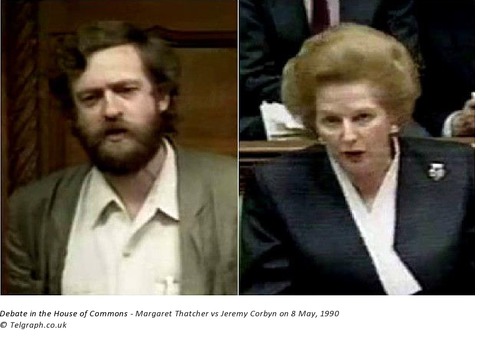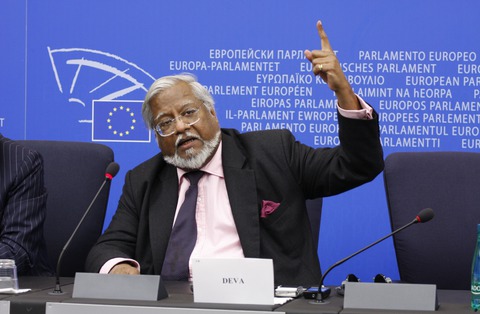| View this email online if it doesn't display correctly |
| | | | | |  |
Dear friends,
The days of advent often present an opportunity to reflect upon the year and while the great crises of the day dominate the headlines - some of which I discuss later in this newsletter – it would be remiss to not reflect upon the positives from this year. The continued revival of the national economy coupled with record employment led to a historic Conservative election victory in the spring; the first time an incumbent party has ever increased both its share of the vote and its number of seats. I greatly enjoyed seeing many of you out on the campaign trail, they said it couldn’t be done and the pollsters constantly underestimated us, but together we secured the trust of the electorate to finish the job started in 2010.
Of course a major consequence of that victory from a European perspective is that the British people will now be entrusted to decide their own future in a definitive in/out referendum. Something I and many of you have sought for close to twenty years. The fate of the renegotiations in 2016 will define this upcoming decision and I have outlined what to look for during this period below.
This was an extraordinary year in politics and yet 2016 promises to be even more enthralling. I look forward to the opportunity to discuss this with you in greater detail but for now I wish you and your family a Merry Christmas and a Happy New Year.
Nirj
|
| The European renegotiations
| |  |
After many months of speculation and careful discussions behind the scenes, we now know the Prime Minister’s core demands for a reformed EU. These chiefly concern: economic governance, competitiveness, sovereignty, immigration. Taking these in reverse order, while a degree of immigration is necessary to fill certain sectors within employment, few would disagree that the amount of EU citizens coming to Britain and claiming benefits is far too high. Indeed, it is thought that 40% of recent EU immigrants have since received benefits from the British taxpayer. While Indian doctors and Australian engineers struggle to gain a visa to Britain, any potential benefit claimant from the EU has full access. Something has to be done about it and while we cannot gain complete control of our borders without leaving the EU, the Prime Minister’s demand of withholding benefits from EU migrants for their first four years is both achievable and workable.
Secondly the issue of sovereignty. When we first voted to join the EU (then the EEC) we were given the impression we were joining a common market, not a common country. We should have paid a little more attention to the small print. For within the founding 1957 Treaty of Rome is a commitment for the European project to move towards “ever closer union.” This is the raison d'etre of the vanguard of federalists who populate the EU leadership. If Britain is to remain within the EU, it is imperative that our reformed membership includes an opt-out from this. As the Prime Minister put it: “I want to end Britain’s obligation to work towards an “ever closer union” as set out in the Treaty. It is very important to make clear that this commitment will no longer apply to the United Kingdom. I want to do this in a formal, legally-binding and irreversible way.”
Thirdly, competiveness. I receive regular emails and letters from constituents whose businesses are held back and tied up in excessive EU regulation. This is not solely an issue here in Britain but across the EU. At a time when the rest of the member-states struggle with sluggish growth or even recession, now is the time to make good on past commitments to free up the flow of capital and services. There is a huge amount that can be done on this issue that has long-since been identified but frustratingly the desire for reform has never been reciprocated by certain EU states. By placing it as a core demand in the renegotiations, it looks likely that this burden on Europe’s prosperity will finally begin to be addressed.
Finally the most complex issue, economic governance. This is fundamental for the future of the EU. Can you really have a ‘union’ and a ‘single’ market when one group of nations share a common currency and are moving towards economic harmonisation whilst several other member-states choose to maintain their own currencies? We have already seen decisions and circumstances of the Eurozone adversely affect the rest of the non-euro member-states. Thus for there to be any future in this two-speed Europe, the Prime Minister is seeking a range of safeguards for Britain and other non-euro nations. Never again should taxpayers in non-euro countries be liable for financial bailouts of the Eurozone. Issues that concern all member-states must be decided by all and not by the Eurozone independently. Any future moves towards a banking union or further harmonisation of the Eurozone should be non-compulsory. And it should be officially recognised that the euro is not the currency of the EU, the EU has many currencies and that will remain the case.
If this issue of economic governance is agreed upon, it is entirely possible that the EU will move towards a more formal two-speed understanding. The Eurozone will be permitted to move towards ‘ever closer union’ whilst the non-euro countries will remain exempt from further economic harmonisation whilst maintaining their current membership. That’s the theory anyway. This may well have more support from the Eurozone members than at first appears, with Italy recently making several soundings on creating a formal mechanism which recognises the status of the nine non-euro countries with measures to prevent the Eurozone states simply outvoting them on every future move forward.
Are these demands enough? Will whatever is negotiated between now and 2017 represent a significant victory for a reformed EU? Or a mere shuffling of the deck chairs? That’s for you to decide come the referendum. In the meantime, let us explore the meaning of these options more deeply and monitor what progress is made.
|
| | The opening of our own borders is no solution to Syria's plight | |  |
The actions of certain European leaders in reaction to the migrant crisis may well have been made with the best of intentions, and won a short bout of plaudits at the time, but has been proven to be what many of us feared in the first place; short-sighted, unworkable, dangerous and ultimately unhelpful.
It is an increasingly worrying trend in this 24/7 media age that when dramatic (or indeed horrifying) events are shown to us in the news, equally dramatic solutions are at once demanded. Some have dubbed this ‘the CNN effect.’ When tragic pictures are shown of a drowned Syrian boy, who was fleeing the atrocities within his homeland, the media commentariat did not turn their righteous anger against ISIS or Assad – the powers responsible for this boy’s death – but upon our own government. With that a false narrative began to take form; that a heartless British government was content to let these people die by refusing to allow them into Britain.
What the media did not mention is that we as a nation are the second biggest donor of aid to that region since the war began. Our international aid has been easing conditions in neighbouring refugee camps long before any twitter hashtag on the subject began trending (as if that’s really any reliable indication of public sentiment). David Cameron’s approach was the correct one. Our relief efforts must go to the contiguous nations around Syria to aid the already established refugee camps. And any intake of asylum seekers must be processed via those camps through the correct channels; not those who would seek to arrive here illegally and present us a fait accompli. To allow the latter would be to essentially allow skipping the queue, and to put our asylum policy firmly in the hands of these callous people traffickers who seek to profit from human misery.
Angela Merkel’s short-lived policy to open all borders and offer potentially unlimited migration to Germany did not ease the migrant crisis but exacerbated it; bringing chaos into Europe’s border nations, encouraging thousands more refugees to abandon their own region in favour of Europe whilst also attracting economic migrants from nations not even affected by the war. It was estimated by the German authorities themselves that one in three ‘aslyum’ seekers were in fact using fake Syrian id to mask their true origins, a simple yet permitted trick that terror cells were reportedly quick to take advantage of. Within days the Iron Chancellor of Europe was forced not only to admit the policy was unfeasible, but she was also forced to do the unforgivable for any federalist – and suspend that most sacrosanct of European ideals - the Schengen agreement. Several other EU member-states have since been forced into this extraordinary measure.
I would hope the disastrous end of Angela Merkel’s open-border policy would put an end to the so-called ‘virtue-signalling’ that seems to dominate the debate around Syria. This self-indulgent game of who can project the most visible compassion by simply outbidding each other on numbers of migrants that should be allowed in. This vanity exercise does not help the masses of displaced people recover their homes and it will not help bring an end to the war in Syria.
|
| | Jeremy Corbyn's accession means the ideological battles of old must be won again | |  |
When I was first getting into campaigning and politics in the 1970s, the ideological divide in our country could not have been starker. After witnessing Britain become the ‘sick-man of Europe’ with its high inflation, failing industry and unaccountable trade union power, we within the Conservatives were determined that bold and persistent experimentation of something new was required. With Margaret Thatcher at the helm we steered a new course; advocating both political and economic freedom, restricting government interference, cutting peoples taxes, encouraging entrepreneurship and standing up for Britain both in Europe and beyond. In those eighteen years in office, Britain went from the so-called sick man to the best performing economy in Europe. The leftist ideology of old had been thoroughly beaten.
In the post-Cold War era that followed, even the New Labour leadership realised this; abandoning their past tenets of renationalisation and increased state control of the economy. Business and enterprise were no longer seen as sources of more revenue to be plundered, but wealth creators that were to be encouraged. And it was not solely Tony Blair that accepted this historic shift of the political spectrum, social democratic leaders throughout the world followed suit, accepting that their citizens valued freedom in all aspects of life and essentially wanted the government to “get out of the way.”
This was the lesson the Labour party should have re-learnt after the 2015 election, where Ed Miliband’s cautious shift to the left was overwhelmingly rejected by the electorate. Instead, Labour have chosen to ignore the people’s sound warning that this is no longer a socialist country - and have turned to the most hardline socialist political leader since Michael Foot. Corbyn’s supporters claim he has injected new life into British politics but his agenda is nothing new. Indeed, it is the dead corpse of 70s socialism he is seeking to reanimate. Re-nationalisation, rent fixing, punitive taxation, no welfare caps, higher borrowing, increased state control. This may well have brought the old militant tendency activists back to the Labour cause but it has no groundswell of support amongst the British public. At some point, every party of opposition has to ask itself whether politicians are here to represent the people or a doctrine? As the Conservative party evolved on social issues so too must Labour on economics, as well as the issue of national security.
For not only does Jeremy Corbyn threaten Britain with economic ruin; his long-held views to reduce our military capabilities, scrap our nuclear deterrent and turn our back on NATO would leave this country under severe external threat with fewer means of defence to rely upon. He fraternises with the autocratic pariah Hugo Chavez. He blames NATO for the Ukraine Crisis and defends Putin’s aggressive expansionism. He invites terrorist sympathisers to Parliament; declaring them, “our friends in Hezbollah” and “our friends in Hamas.”
And yet despite the obvious unsuitability of the new socialist leadership to govern Britain, a lacklustre Conservative party, or one engulfed in in-fighting, will run the risk of handing the country over to such peril. The ideological consensus of the post-Cold War era has been shattered. We will once again have go to the country to promote, advocate and explain why the free market and the personal freedom that derives from it is not only best for the nation, but greatly beneficial to their own aspirations and financial security. And we must do this with all the passion and energy that we displayed the first time we won this great debate back under Margaret Thatcher’s leadership in the 1980s.
|
| | | Anti-Corruption Proposals for Trade Deals
| |  |
I cautiously welcome the pledge of the European Commission to finally include anti-corruption provisions in any future trade deal the EU seeks to negotiate. Corruption within international trade hinders the development of a competitive private sector, makes a mockery of the fair awarding of contracts and undermines the rule of law. Though the stated intention towards a further push against corruption is to be encouraged, the EU would do well do enforce its own existing anti-corruption provisions amongst the member-states. Transparency International estimates corruption within the EU alone to cost €120 billion a year, citing the UK and Germany as the only two EU member states to actively enforce existing anti-corruption conventions set down by the EU and the OECD.
In addition to new anti-corruption measures, the European Commission made further soundings on delivering a more efficient trade strategy. With 90% of future global growth predicted to occur outside Europe’s borders and with the trade partnership with the United States (TTIP) still to be concluded, my Conservative colleagues and I will be giving this area great scrutiny in the coming months. If the British people are to be expected to believe our future lies within the EU, we need to start seeing some actual results to match this ambitious rhetoric from the Commission.
|
| EU resistance on Necessary Spending Reductions
| |  |
While nation-states seek to balance the books, the European Parliament requests more to spend. It’s severely disappointing to see spendthrift MEPs vote for €4 billion over and above what member-states estimated for 2016. This is in direct defiance to the ceilings established in the Multi-Annual Financial Framework agreed in 2013. The British Conservative delegation were in the minority of those who voted against the rise; imploring our European colleagues to reprioritise existing spending on where it can be most effective.
Furthermore, we cited the colossal amount of waste within the EU budget, most notably the trip to Strasbourg plenary once a month which, over the period of the seven-year cycle of an EU budget, costs an estimated £928 million. Other vanity projects such as the ‘House of European History’ have also seen their estimated costs spiral out of control. Further savings could be made in reducing the amount and scope of delegations sent abroad, reducing contributions to the formation of political foundations, opposing the expansion of the ECJ and re-evaluating the added value of the Economic and Social Committee and the Committee of the Regions. Efficiency savings such as these should come before any request for extra revenue.
|
| Mobile Roaming Charges to End within the EU
| | | I’m sure the final agreement to put an end to roaming charges will be very much welcomed by all. The extra punitive charges on using your phone while abroad will come to an end in July 2017 after being cut significantly throughout 2016. This is an important step towards a single digital market and a good result for UK consumers, whom were estimated to have paid out close to £600 million last year in these excessive charges abroad. |
| Debate on the Plight of the Steel Industry blocked by Socialist MEPs
| | | Following the recent job losses in the British steel industry, in part exacerbated by a glut of discounted Chinese steel on the European market, Conservative MEPs sought an emergency debate to discuss possible measures to help overcome the crisis. Regrettably, this motion was blocked by a socialist-led coalition of MEPs. With people’s livelihoods at stake, we need to look closely at whether the EU’s existing laws on anti-competitive behaviour have been threated or even breached. We will push once again for this to be debated. |
| | | | | | I will be back in touch with you again very soon. In the meantime you can check my website www.nirjdeva.com for regular updates and if I can be of any assistance to you on anything raised here or anything else for that matter, please do not hesitate to contact me at nirj.deva@europarl.europa.eu.
|
|
|
|
| | | | | |